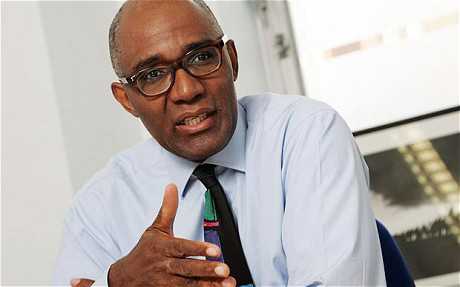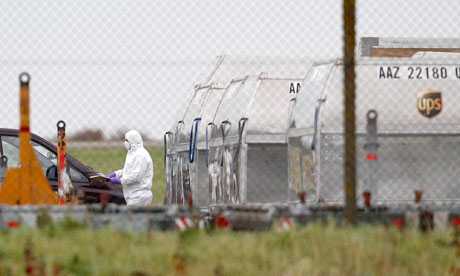* warned it had become “fashionable” to attack and mock religion, singling out atheist polemicist Richard Dawkins for his views;
* said faith groups should be free from interference in their own affairs, meaning churches should be allowed to block women and homosexuals from being priests and bishops;
* attacked hardline Christian groups which he said were picking fights – particularly on the issue of homosexuality – for their own political ends;
* told churches and religious institutions they had to comply with equality legislation when they delivered services to the public as a whole.
The report, published by the Commission tomorrow, says that some religious groups have been the victims of rising discrimination over the last decade.
It shows that in the course of the last decade, the number of employment tribunal cases on religion or belief brought each year has risen from 70 to 1000 – although only a fraction of cases were upheld.
Mr Phillips spoke after a series of high-profile cases which have featured Christians claiming they have been discriminated against because of their beliefs, with a doctor currently fighting a reprimand from the General Medical Council for sharing his faith with a patient.
While the equalities boss promised to fight for the rights of Christians, he expressed concern that many cases were driven by fundamentalist Christians who are holding increasing sway over the mainstream churches because of the influence of African and Caribbean immigrants with “intolerant” views.
In contrast, Muslims are less vociferous because they are trying to integrate into British “liberal democracy”, he said.
“I think there’s an awful lot of noise about the Church being persecuted but there is a more real issue that the conventional churches face that the people who are really driving their revival and success believe in an old time religion which in my view is incompatible with a modern, multi-ethnic, multicultural society,” Phillips said.
“Muslim communities in this country are doing their damnedest to try to come to terms with their neighbours to try to integrate and they’re doing their best to try to develop an idea of Islam that is compatible with living in a modern liberal democracy.
“The most likely victim of actual religious discrimination in British society is a Muslim but the person who is most likely to feel slighted because of their religion is an evangelical Christian.”
Senior clergy, including Lord Carey, the former Archbishop of Canterbury, have attacked equality laws for eroding Christianity and stifling free speech, but Phillips said many of the legal cases brought by Christians on issues surrounding homosexuality were motivated by an attempt to gain political influence.
“I think for a lot of Christian activists, they want to have a fight and they choose sexual orientation as the ground to fight it on,” he said.
“I think the whole argument isn’t about the rights of Christians. It’s about politics. It’s about a group of people who really want to have weight and influence.”
He added: “There are a lot of Christian activist voices who appear bent on stressing the kind of persecution that I don’t think really exists in this country.”
However, Mr Phillips, who is a Salvationist from a strong Christian background, expressed concern over the rise in Britain of anti-religious voices, such as Richard Dawkins, who are intolerant of people of faith.
“I understand why a lot of people in faith groups feel a bit under siege,” he said.
“There’s no question that there is more anti-religion noise in Britain.
“There’s a great deal of polemic which is anti-religious, which is quite fashionable.”
Phillips said that the Commission is committed to protecting people of faith against discrimination and also defended the right of religious institutions to be free from Government interference.
The Church of England is under pressure to allow openly gay clergy to be made bishops, while the Catholic Church only permits men to be priests, but the head of the Government-funded equalities watchdog said they are entitled to rule on their own affairs.
“The law doesn’t dictate their organisation internally, in the way they appoint their ministers and bishops for example,” he said.
“It’s perfectly fair that you can’t be a Roman Catholic priest unless you’re a man. It seems right that the reach of anti-discriminatory law should stop at the door of the church or mosque.
“I’m not keen on the idea of a church run by the state.
“I don’t think the law should run to telling churches how they should conduct their own affairs.”
The intervention by the Commission comes after criticism of its £70 million annual budget, which is to be cut drastically.
Mr Phillips, a former Labour chairman of the Greater London Assembly and television producer was criticised for his £110,000 a year salary and was accused of “pandering to the right” by Ken Livingstone, the former Labour London mayor, for saying that multiculturalism had failed.
 The singer, who is now based in Woodford Green, is currently at number one in the singles chart in her home country of Turkey.
The singer, who is now based in Woodford Green, is currently at number one in the singles chart in her home country of Turkey.




